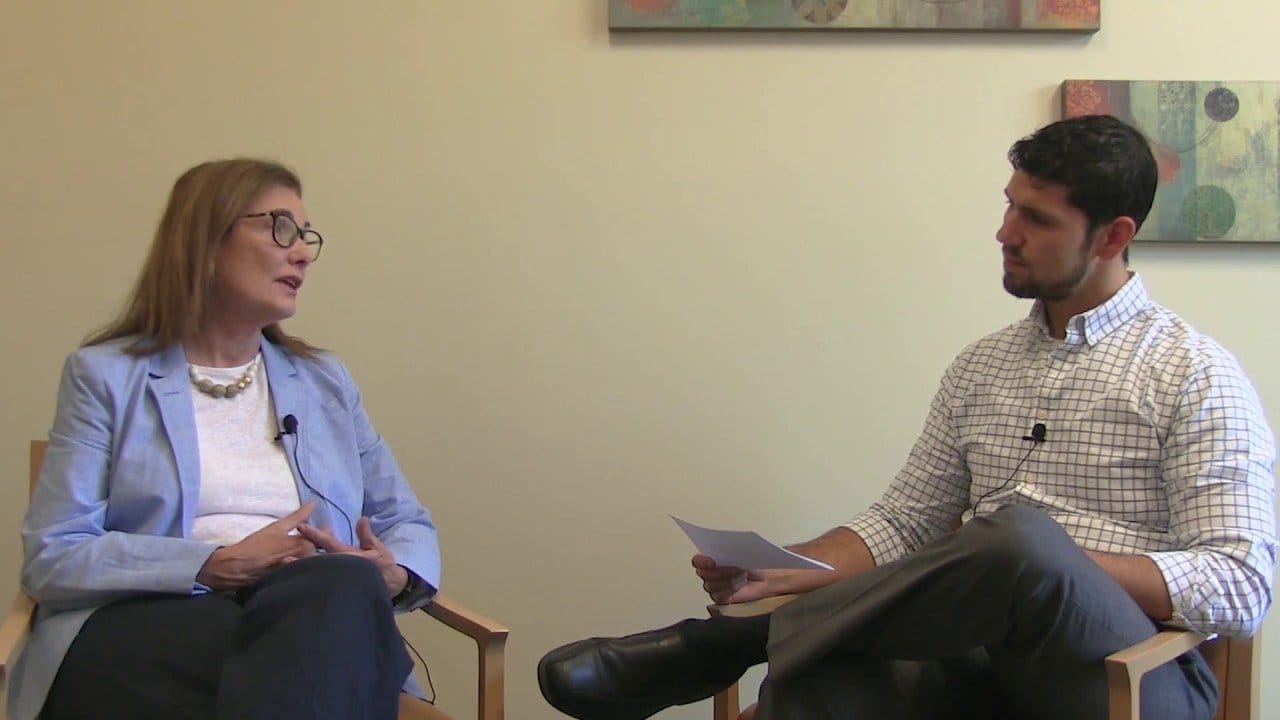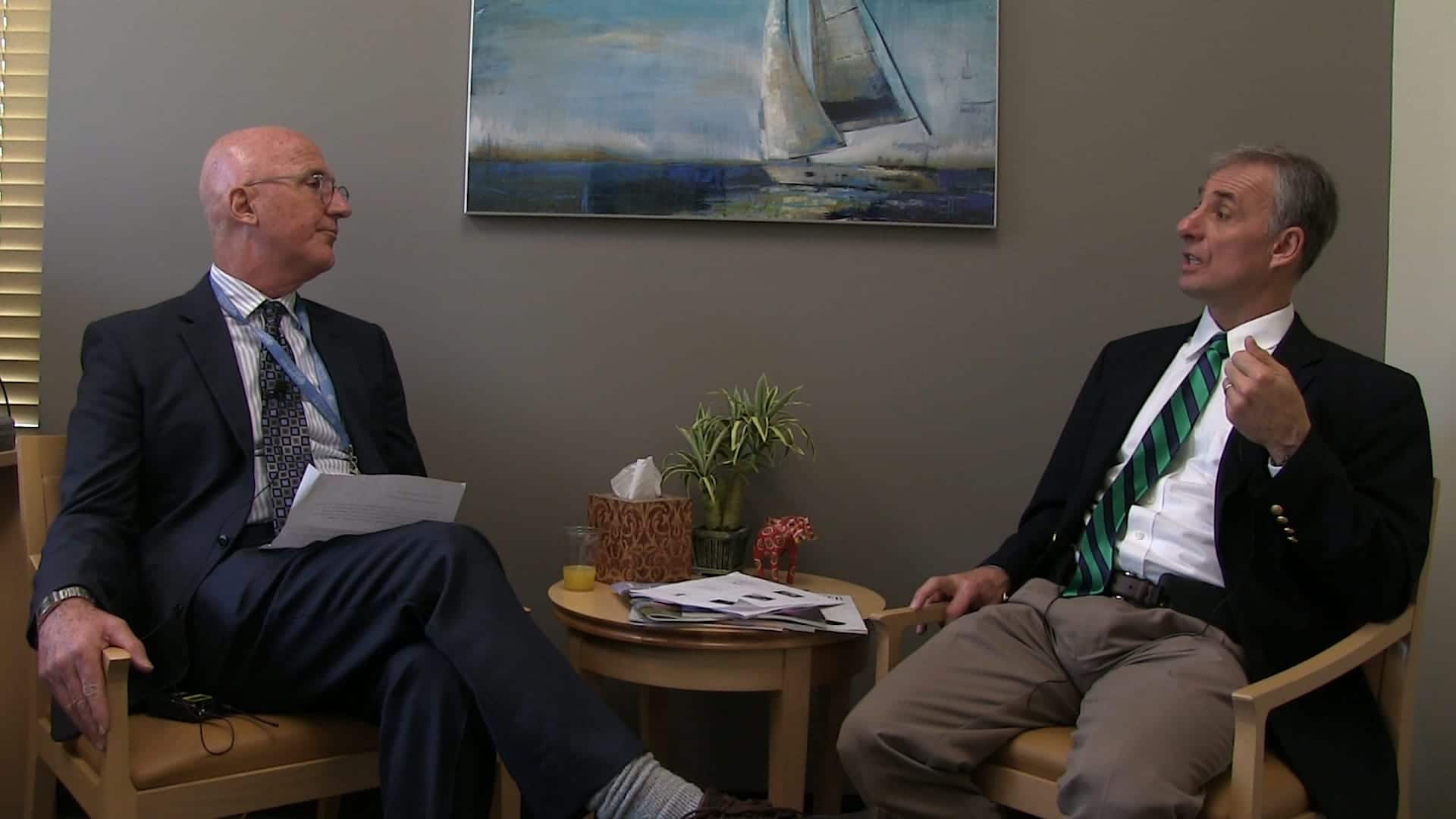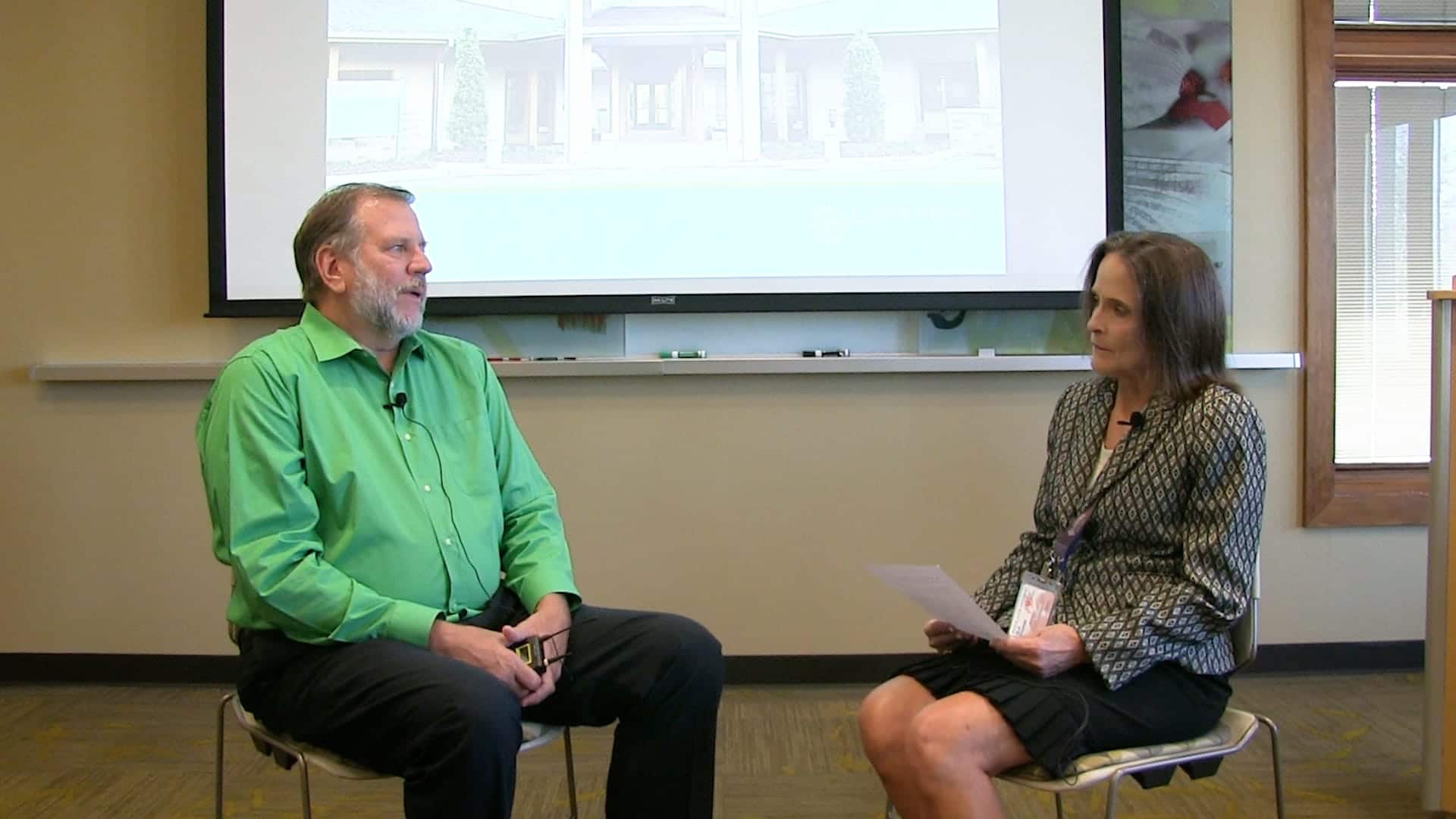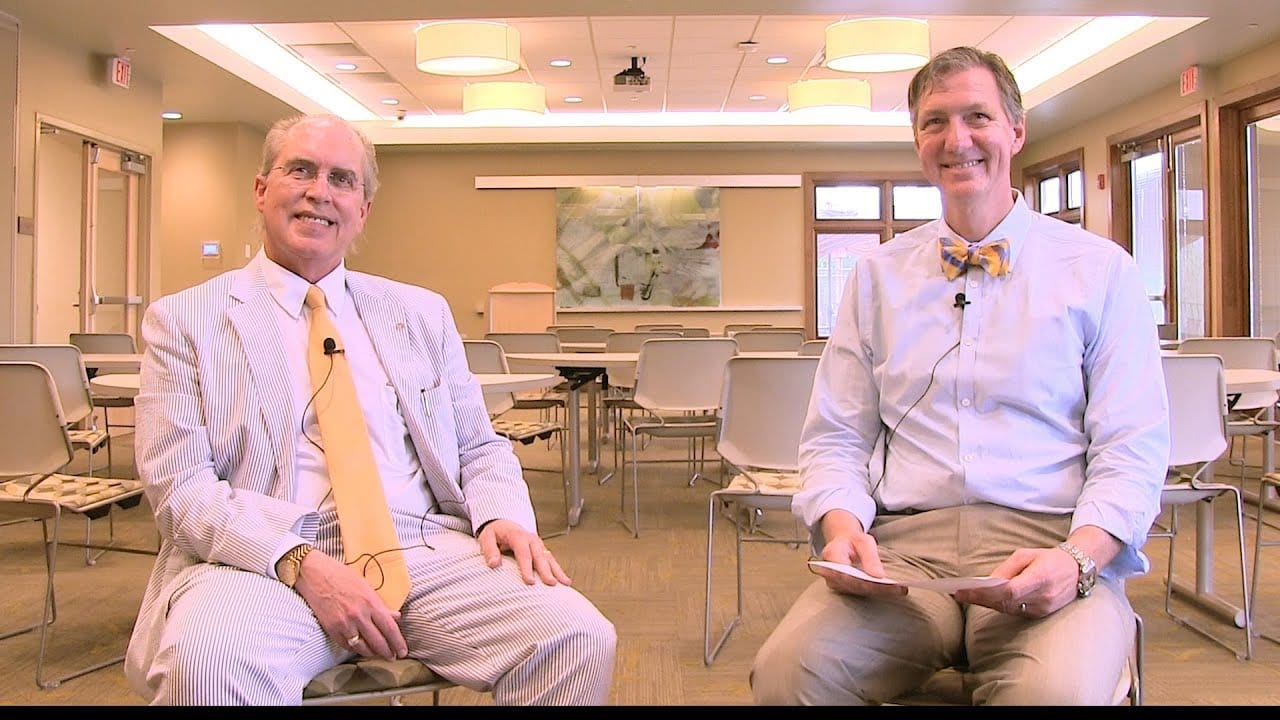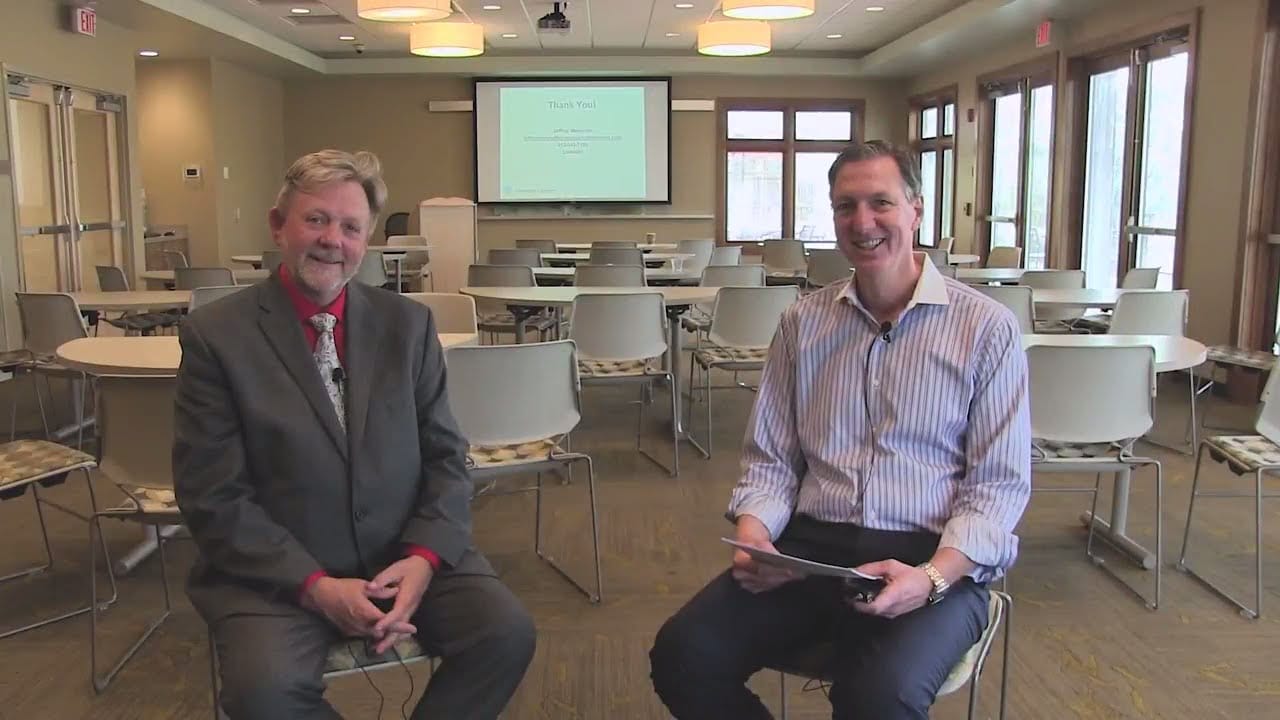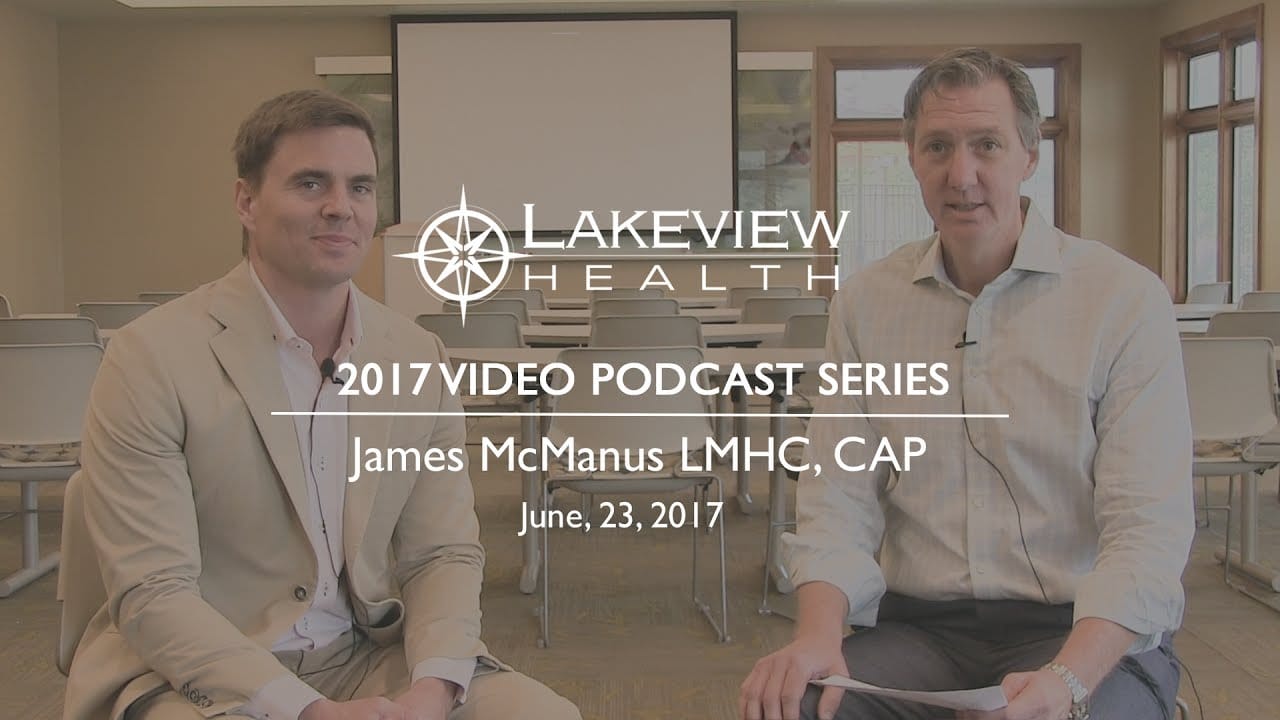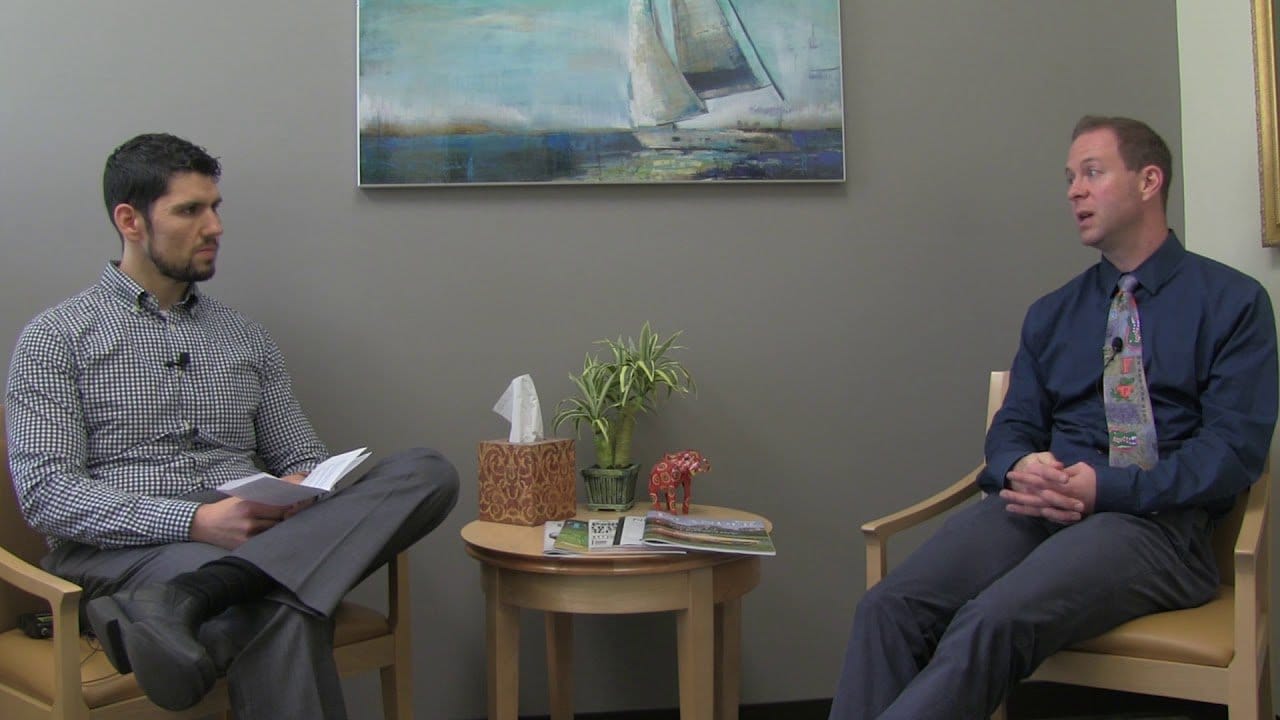

By: Dino Liverano
Dino Liverano Interviews Brian Fuehrlein, MD, PhD
Transcript:
Dino Liverano: Welcome to the Lakeview Health Video Podcast series. I’m Dino Liverano, Clinical Manager of the men’s facility here. I’m here with Dr. Brian Fuehrlein, Director of Psychiatric Emergency Medicine at V.A. Hospital, and Professor of Psychiatry at Yale School of Medicine. Thank you for joining us Dr. Fuehrlein. I’m just going to ask you a couple of questions. I know that you are passionate about teaching people about the disease of addiction. What have you found to be most successful or impactful in helping those with little to no knowledge about addiction, or that really don’t understand addiction as a disease. Brian Fuerhlein: So I think that the most important thing is that people who struggle with addictions can sometimes do things that are very frustrating to people who aren’t experiencing addiction. If we have loved ones, family or friends, or our clients are patients who are struggling with addictions, we’re interacting with them a lot, they’re going to say, do, behave a certain way. All these things they’re behaving like is going to be frustrating for us, and that may bring about anger, it may bring about frustration, it may lead us to cut them off, or as physicians we may want to say, “I don’t want to care of this person. This is my least favorite patient.” Brian Fuerhlein: So what I try to do is create a framework by which either family members or loved ones or physicians or nurse practitioners or other people who take care of patients, or who even have loved ones who struggle, I created a framework by which it helps them to understand a little bit about addiction. And starting with the behaviors that might be frustrating to us, building upon that and saying, “This is what’s actually going on in the brain. This disease process is creating these problems. It’s the reason why they may frustrate us sometimes. And instead of being angry and frustrated, we should understand that this disease process causes this and therefore we should treat them as though they have another disease process and encourage them to get help and encourage them to get treatment, instead of being angry and hostile all the time.” Brian Fuerhlein: So when I work with students and residents and other faculty members and I teach about addiction, I teach in a way that I help them to understand why someone with an addiction is behaving a certain way, and how it developed and what made them behave that way. And when I work with families and friends of people in the community, I teach them, “This is why your loved one may behave a certain way and this is the biological reason for it, and let’s work with them to get them help instead of always being angry and frustrated all the time.” Dino Liverano: So really getting them to understand that there is these underlying processes more so than just a choice of yes, I want to, no, I don’t. Brian Fuerhlein: Right. If it was as easy as someone making a decision, “Okay, I’m going to stop drinking” then very few people would be an alcoholic because nobody wants to develop the problems associated with having an alcoholic’s disorder. Nobody wants to have DUIs, nobody wants to lose their family, nobody wants to lose their loved ones. Nobody wants those things. Dino Liverano: Sure. Brian Fuerhlein: If it was easy as them at some point saying, “Okay. Maybe I just need to stop drinking” then everybody would stop drinking. Especially with opiates. People very quickly start to realize the effects of opiates. It starts with cost, they may spend their life savings, and then it gradually progresses to medical things and social consequences. And if it any point along that path someone could just say, “Well, why don’t I just not do this anymore? This isn’t good for me” then everybody would stop doing it. The vast majority of people who struggle with an addiction can’t do that, so it’s very important to educate that this is a disease process that this person didn’t ask for, this is something that can be treated, but it’s not treated with anger and hostility and threats, it’s treated with empathy and getting people the help that they need through programs like this and others. Dino Liverano: Sure. Thank you. The opioid epidemic has permeated every corner of the US. Are there any trends around the opioid epidemic that you and your students have seen this year? Brian Fuerhlein: Yeah. So I would say the trend is that it’s getting worse, but also that certain types of opiates seem to be leading the way with overdoses. And it’s very region specific and it’s really difficult to say, “Well why is it so prevalent in one state or within one community in one state.” Connecticut is actually, it’s certainly not one of the worst states, but there’s areas within Connecticut that are being devastated. And you probably hear about West Virginia and some other rural areas that communities are being totally devastated. Brian Fuerhlein: And I would say the primary trend that we’re seeing now would be the synthetic opiates, the powerful opiates, which are very routinely being mixed in with heroin. That’s what’s killing people. So your Fentanyl and your Carfentanil, the things that are very, very potent and the person who’s addicted is injecting a certain amount, they’re used to injecting a certain amount of heroin, and if that’s laced with Fentanyl, that same amount is deadly, deadly to a larger animal, because of how powerful it is. Brian Fuerhlein: So often people will even seek that out. Patients with addictions, it’s cunning and bad for you, people will sometimes tell me, “My friends got into a batch of heroin that clearly had something in it and they were passed out and unconscious, and they didn’t die, but they were almost dead perhaps. But I wanted to try it too to see what it was like.” So even knowing that this is the dangerous stuff, this is the deadly stuff, sometimes because of the need for more and the desire to get what they want, that will even drive them to do things that are even far riskier. But I would say the major trend that we are seeing is an overall increase in deaths and an overall significant increase in the deaths related to these synthetic opioids that are really, really powerful. Dino Liverano: Just really showing how important the work is that you do. Brian Fuerhlein: Yeah. I mean, in the Emergency Room that I work at we see people every day who are young, usually in their 20s, in the early 30s, who are injecting heroin or mixing with alcohol or benzos, who have already overdosed and been resuscitated with Narcan. And these are patients that are really, if you take any patient in medicine of any medicine at all, these are as critical as any patients. Anybody who’s dying of any other illness, you take someone who was Narcan’d yesterday and who almost died of an overdose, that patient is as critical as anybody you will see. Brian Fuerhlein: So teaching the students, the residents, other providers, family, to have empathy for that person, to encourage that person to try to get that person some help might save their life, instead of throwing them to the curb and saying they’re making a choice to use, and I’m just going to let them use. So actually try and encourage them to get help. And one more thing, it’s really sad when people die of an overdose or die of alcoholism who are, they tend to be alone and isolated and have aggravated their family and friends and maybe they’re homeless and they’re all alone in a room somewhere with a needle in their arm and they’re found dead. Usually, it’s not celebrated by family that how sad this was and their life was wonderful, it’s other things. But when people die of other illnesses, especially at a young age, it’s often sad and everybody comes together, and normally, “I can’t believe this person has cancer, I feel so bad. Let’s celebrate his life” and it’s just a really, really, really sad thing. It’s sad when anybody dies, but it’s often not treated the same way when someone dies of a heroin overdose because they made that decision, so it was their fault and they aggravated everybody for the past five years. And it’s just different. And that’s sad because nobody wanted that life, just like nobody wanted a life with any other medical problems. Brian Fuerhlein: So I think bringing all of this to light with what you do and educating the community and educating students and residents and clinicians and getting the word out about addictions in a medical context and the underlying basis of it and the significance of the opiate use disorder. Again from a medical standpoint, I think it’s what’s really, really important. Dino Liverano: All right. Thank you for your time. And if you guys would like any more information, please contact us any time at 888-480-3799. Thank you.
